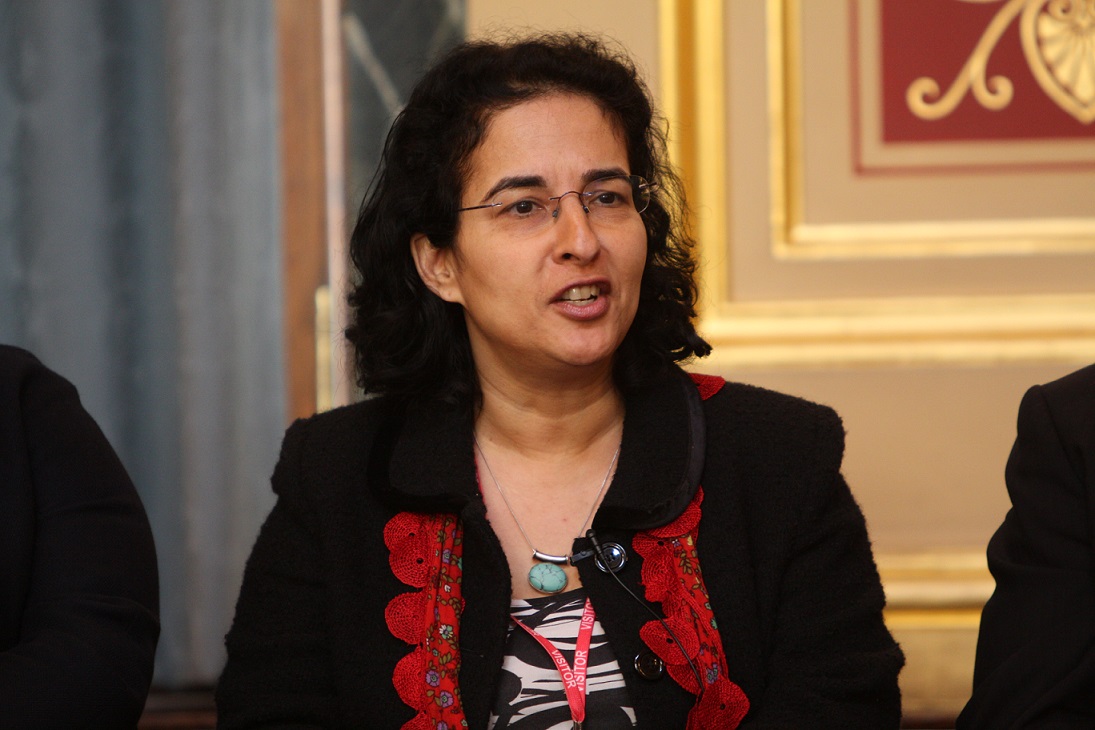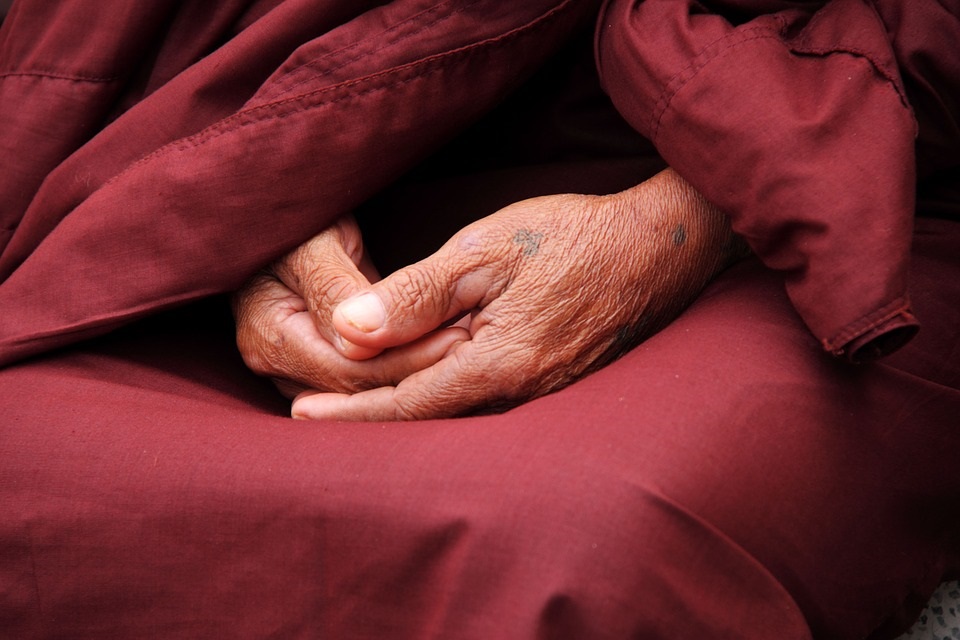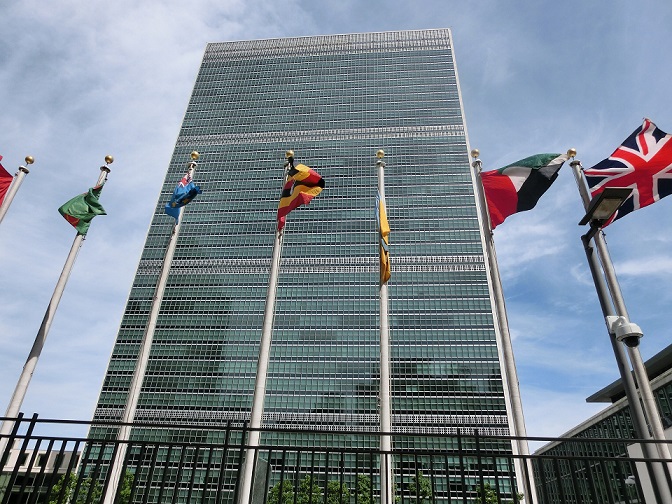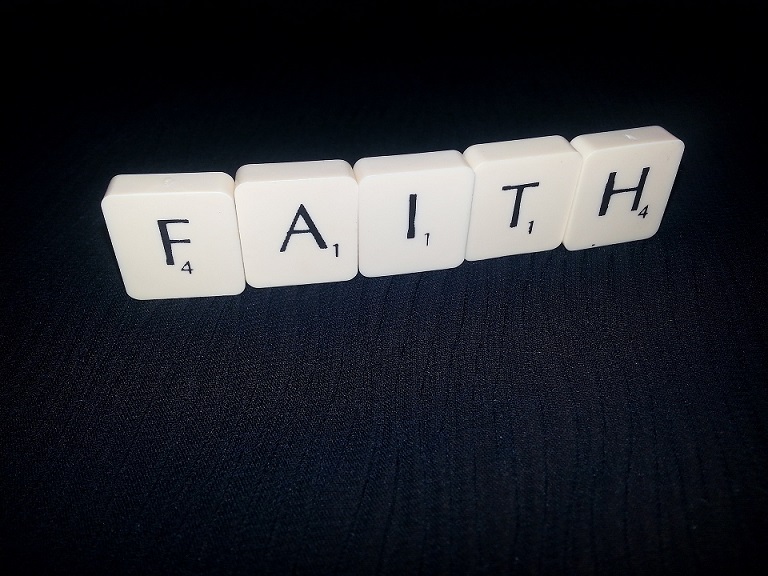Nazila Ghanea, the UN Special Rapporteur on Freedom of Religion and Belief, discusses the current situation of religious freedom worldwide, highlights the importance of protecting individuals’ rights to practice their beliefs and emphasises the need for global efforts to combat religious discrimination and persecution. She calls for increased dialogue, understanding, and respect among diverse religious communities to promote a more inclusive and tolerant society.

UN Special Rapporteur on Freedom of Religion and Belief.
pzCreative Commons Attribution 2.0 Generic.
Rola Zamzameh*
Renowned for her accomplishments in the field of international law, Nazila Ghanea was born in Shiraz, Iran. Her parents (he a revered doctor, she a teacher) had immigrated to Qatar a decade and a half prior to the Islamic revolution, so her early life was characterised by frequent travelling between Qatar and Shiraz.
This transitory existence led to the fortuitous circumstance that she and her siblings were born in Shiraz. Eventually, the family moved permanently to Qatar, where she spent her formative years. These journeys served as a cherished connection to their relatives and to the cultural richness of Shiraz. Subsequently, a new chapter unfolded in her life when she travelled to England for her higher education, an endeavour that would shape her future in unforeseen ways.
Currently she is Professor of International Human Rights Law and Director of the MSc in International Human Rights Law at the University of Oxford (prior to that, Senior Lecturer at the University of London, 2000-2006).
Most importantly, Nazila Ghanea – who has also researched and published widely in international human rights law and served as consultant to UN numerous agencies for 17 years- took up her mandate as UN Special Rapporteur on freedom of religion or belief on 1 August 2022.
As you are aware, certain governments remain unaccountable to the Human Rights Commission and special rapporteurs. How do you plan to approach and engage with such countries?
We need to utilize our existing tools more effectively. The UN Special Rapporteur on HR has been active for around 37 years, and during this time, detailed reports have been compiled for approximately 40 countries.
 These reports, including ones on countries like Iran, are registered with the United Nations and their documents are publicly accessible. One of our strategies is to activate these reports. When holding a country accountable before the Human Rights Committee under the International Covenant on Civil and Political Rights, it is my duty to remind the authorities of the previous reports. For instance, referring to the previous reports and citing paragraph 18 of the International Covenant, we can request that these countries be held accountable for their actions since the issuance of the previous reports. Additionally, during the Universal Periodic Review conducted every four and a half years, all countries appear before the human rights commissions, and it is my responsibility to utilize this opportunity to raise questions about freedom of religion and opinion.
These reports, including ones on countries like Iran, are registered with the United Nations and their documents are publicly accessible. One of our strategies is to activate these reports. When holding a country accountable before the Human Rights Committee under the International Covenant on Civil and Political Rights, it is my duty to remind the authorities of the previous reports. For instance, referring to the previous reports and citing paragraph 18 of the International Covenant, we can request that these countries be held accountable for their actions since the issuance of the previous reports. Additionally, during the Universal Periodic Review conducted every four and a half years, all countries appear before the human rights commissions, and it is my responsibility to utilize this opportunity to raise questions about freedom of religion and opinion.
How do you assess the role of the media, particularly the diaspora media (exile media), in this field?
It is important for media outlets and individuals like yourself to write about freedom of religion and belief and contribute to its strengthening. Encouraging collaboration among non-governmental organizations (NGOs) is also essential. For example, in Pakistan, there are several NGOs concerned about the new blasphemy law and its potential misuse against minorities. We encourage them to cooperate with each other, as the result of such collaboration can be highly impactful.
What is the role of interfaith dialogues in order to expand Freedom of religion and belief?
It is crucial to ensure that interfaith dialogue goes beyond mere presence and symbolism, and includes concrete steps for implementation at the community level.
 In my upcoming report to the UN General Assembly, I emphasize that freedom of religion and belief should extend beyond mere words and be embraced within society, among neighbours, and in cities and villages. Governments have a responsibility not only to respond to international institutions but to ensure that all individuals can enjoy this freedom. Often, governments may present an idealized image of religious freedom in their country, while many individuals are still victims of its absence.
In my upcoming report to the UN General Assembly, I emphasize that freedom of religion and belief should extend beyond mere words and be embraced within society, among neighbours, and in cities and villages. Governments have a responsibility not only to respond to international institutions but to ensure that all individuals can enjoy this freedom. Often, governments may present an idealized image of religious freedom in their country, while many individuals are still victims of its absence.
What is the next step when a government report on certain violations, is not considered convincing by the UN Human right commission?
If government reports are not considered convincing, it can be challenging to achieve a satisfactory outcome for the victims. The final result, including the main report and the government’s response, is made public after 60 days and is disseminated within the United Nations. The complaint, bearing the UN’s letterhead, is announced to the media and can be examined in court.
So, it seems that the UN does not take any practical action in this way. Is that true?
In principle, the United Nations primarily serves an informational role, serving as a link between the complainant and the accused. However, these cases are not forgotten or ignored. They become part of the periodic human rights review process, and the summary of all complaints is available. This can lead to experts raising questions about these issues during the review.
 But none of what you said is considered a punitive measure or pressure on that particular country.
But none of what you said is considered a punitive measure or pressure on that particular country.
The pressure is that the cases are regularly followed up and the issue is raised with the officials of those countries during the visit of the UN officials.
But efforts can be made to create serious legal and international restrictions for countries that engage in discriminatory practices. Measures such as sanctions against government officials, expulsion of ambassadors, or cancellation of membership in relevant commissions could be potential avenues to exert pressure and enforce accountability.
As a rapporteur, my role is primarily to inform and report on human rights violations rather than directly implement sanctions or punitive measures. It is true that many countries or institutions, such as the European Union, review these reports and maintain lists of sanctions. In certain acute cases, the matter may be referred to the UN Security Council, although this is an exceptional occurrence.
For example, does the Security Council act “only” in the case of genocides?
While it is more common for the Security Council to intervene in cases of grave human rights violations, such as genocide or crimes against humanity, the specific actions taken by the Security Council vary depending on the circumstances and the political will of its member states.
Currently, which countries have serious problems in the field of lack of freedom of religion and belief, and how many are there?
It is difficult to provide an exact number or a comprehensive list.
 Each country’s situation and the severity of religious restrictions can vary significantly. During my visits and engagements with non-governmental institutions, I have discussed countries such as Pakistan, India, Nigeria, Nicaragua, and Cuba as areas of concern. However, this list is not exhaustive, and there are numerous countries around the world facing challenges in this regard.
Each country’s situation and the severity of religious restrictions can vary significantly. During my visits and engagements with non-governmental institutions, I have discussed countries such as Pakistan, India, Nigeria, Nicaragua, and Cuba as areas of concern. However, this list is not exhaustive, and there are numerous countries around the world facing challenges in this regard.
The lack of action concerning religious restrictions faced by Shiites in Saudi Arabia raises questions about the United Nations’ stance and its potential bias toward wealthy nations. The absence of any observable consequences, such as a Saudi embargo, further fuels these concerns.
I would like to say that exactly my first report contented this issue. However, the forms and weight of discrimination may differ, and restrictions in countries with less open information environments may receive less attention.
Regarding the slow process of improving conditions related to freedom of religion, belief, opinion, and speech what is your outlook for the future?
My vision for the future is optimistic. I believe that the younger generation is increasingly aware of and supportive of these freedoms. Through virtual spaces and increased awareness, many prejudices are being challenged. However, political narratives that exploit nationalism and ignore the rights of minorities can hinder progress in this area. Overcoming these obstacles and promoting a more inclusive and respectful approach to freedom of religion and belief is essential for positive change.
 In terms of international law, when a government designates an official religion, can it be seen as a potential form of discrimination?
In terms of international law, when a government designates an official religion, can it be seen as a potential form of discrimination?
The International Covenant on Civil and Political Rights, in paragraph 18, addresses this issue by emphasizing that if a country designates an official religion, it must ensure that other religions, minorities, and beliefs are not discriminated against.
While there is no explicit prohibition on designating an official religion, the responsibility lies with the government to demonstrate that equality and non-discrimination are upheld in practice, including in areas such as employment, education, and social conditions.
Some countries may claim that they fully respect all human rights related to freedom of religion and opinion and place the burden of proof on international institutions.
However, this is not the case in the field of discrimination. The principle of substantive equality requires governments to provide evidence that no discrimination has occurred.
In essence, these various freedoms are interdependent and interconnected.
Yes. Freedom of religion and opinion, for instance, goes hand-in-hand with freedom of expression, social engagement, participation in public life, and other fundamental liberties. Our steadfast commitment is to safeguard the rights of individuals and communities, firmly believing in the inseparability of these essential freedoms.
*Rola Zamzameh: Senior Journalist of EU Parliament – Brussels.
(Photos: Pixabay)












.jpg)












